The Importance of Mandarin Fluency in an International School
As we celebrate Mid-Autumn Festival, a key date in the Chinese calendar, we reflect on our position as an international school in China, and how important fluency in Mandarin is for all our students; and especially to those for whom Chinese is a mother-tongue. In this article, Head of Mandarin, Ms. Zhou, outlines our philosophy towards Mandarin, highlights our impressive Mandarin track record, and looks at the outcomes that can be expected for those in our community who are native Chinese speakers.
The Dulwich College International family of schools was born in China in 2003, and, with the motto of “building bridges to the world”, we understand that fluency in Mandarin provides a core element of the bridges we will build together. When our students graduate with the ability to communicate in Mandarin, they are valuable global citizens able to connect cultures and deepen intercultural understanding, wherever life may lead them. We know that we cannot truly ‘Live Worldwise’ unless we understand and appreciate the cultures, languages and traditions of the world. This aligns with the IB learner profiles, which aim to develop internationally minded students who “…Understand and appreciate their own cultures and personal histories, and are open to the perspectives, values and traditions of other individuals and communities. They are accustomed to seeking and evaluating a range of points of view, and are willing to grow from the experience” (What Is An IB Education?). At Dulwich College Shanghai Puxi, we build bridges from our community here in China, to the world.
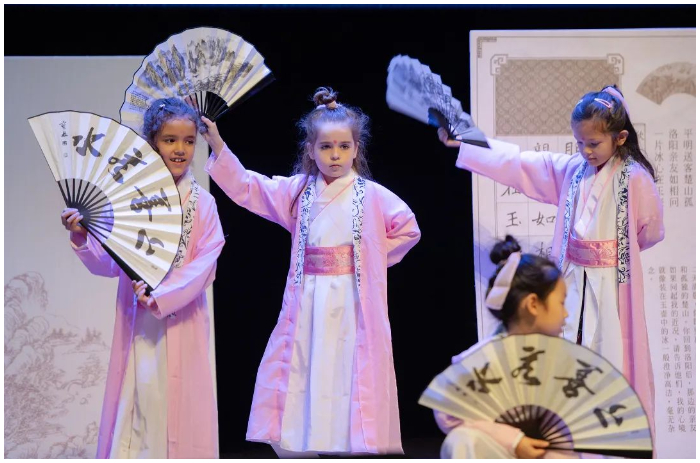
For those in our community for whom Chinese is a first language, proficiency in Mandarin and an understanding of their home culture takes on special significance. When they graduate from university, they may choose to return to China to live and develop their careers. It is important to us that they are able to do so equipped to compete and function in Chinese society as creative leaders with true fluency both in literacy and cultural awareness.
We are proud of our track record in helping our students excel in Mandarin, with significant tangible results to celebrate:
2021 IGCSE Results
Chinese as a First Language
100% A* to B; 80% A or A*
Chinese as a Second Language
100% A*
Chinese as a Foreign Language
100% A or A*
In 2021, one of our founding students who took Chinese as a Foreign Language was recognised for receiving the single highest grade in Asia, receiving the High Achievement award and being invited to attend the Outstanding Cambridge Learner Awards ceremony.

Beyond exam results, Dulwich College Shanghai Puxi students have also excelled in other Chinese language activities and competitions. For example, several students won first prize in the "Cloud Writing Cup" International School Chinese Reading Competition. Our school also won the first prize in the "Traditional Chinese Culture+" performance organised by the Shanghai Municipal Education Commission for students from international schools in Shanghai. These are just a few of the significant achievements our students have made in Mandarin and Chinese cultural awareness.
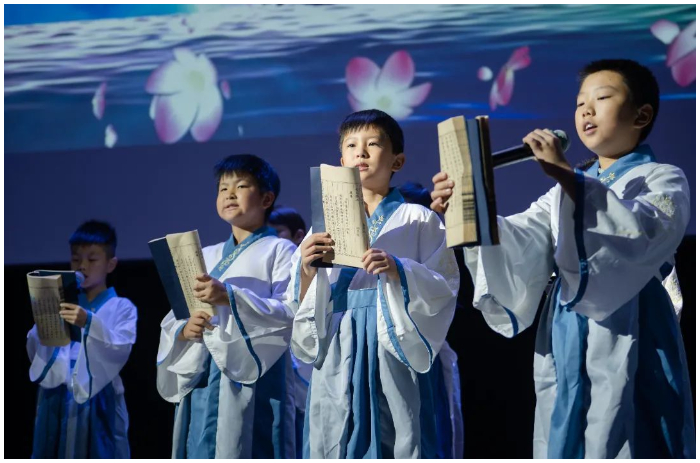
This year, our oldest students have commenced taking the IB Diploma Programme and we anticipate equally impressive results from them. Both our students and teachers are working hard to realise this goal.

So how are we able to achieve such impressive results?
Mandarin Pathways for Native Chinese Speakers
————
Whether a student is learning Mandarin as a second language during their time living in China, or Mandarin is their mother-tongue, we feel it is our duty to ensure that all our students graduate from the College with the level of fluency in Mandarin that is appropriate for their future goals. Our Mandarin curriculum is tailored to meet the needs of every student, and we are proud of how this serves our community. For the rest of this article, however, I will be focusing on the Mandarin pathways for our native Chinese speaking students.
Our student’s proficiency in Mandarin starts in DUCKS, where from Toddler to Year 2 we follow a dual language approach. Here, each classroom is led by both an expatriate native English-speaking teacher, and a fully qualified native Chinese-speaking teacher working together to provide children with an environment rich in language learning opportunities. This allows students to gain confidence and freedom to use language in a meaningful way, rather than just imitate it. The dual language approach ensures that students are building the foundations of academic success in both languages, with benefits that are both profound and well documented.

From Year 3 onwards, our Mandarin pathways are designed to align with the IB Diploma Programme. The core of the new syllabus for the IB Diploma Programme Chinese A (for native Chinese speakers) includes eight curriculum objectives, eleven assessment objectives, seven core concepts (identity, culture, creativity, communication, perspective, transformation, presentation) and three areas of inquiry (reader, writers and text; time and space; intertextuality: connecting texts). Dulwich College Shanghai Puxi integrates the dozens of text types required by the syllabus down through each grade level in Junior and Senior Schools.
We have reorganised the themes and units we teach through Junior and Senior School based on the highest standards of the IB Chinese A curriculum, allowing the highest standards of national and international curricula to guide the teaching of Chinese as a native language. This develops students' cultural identity while expanding their international horizons and improving their overall application of Chinese language skills. Dulwich College Shanghai Puxi has an experienced and ambitious Mandarin team whose goal it is to create a world-class Mandarin classroom and foster lifelong learners who love Chinese.

The IB Chinese A Course
————
“Life is a tree while the mother tongue is the root”
The International Baccalaureate Chinese A curriculum places great emphasis on the role of the mother tongue in the development of students' thinking, social interaction, and identity. "Life is a tree while the mother tongue is the root” was a phrase repeatedly emphasised by IB Chinese A literature course expert Mrs. Dong Ning when she visited the College to guide the design of our Mandarin curriculum.
The IB Language and Literature course studies both literary and non-literary texts. The study of language and literature helps develop knowledge and understanding of the self and our relationship to others. Through the study of original works and translations in the languages they study, students learn about the various ways in which different languages and literature represent the world and how these reflect and help create different identities. Students also recognise the different ways in which cultures represent the world and are encouraged to consider the reasons for them, so that they can better understand the different ways in which people experience and represent the world.
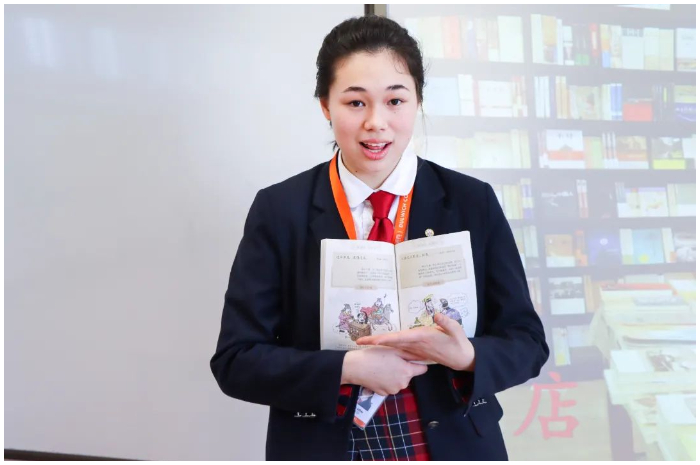
In addition to the four traditional dimensions of language learning: listening, speaking, reading, and writing, the IB Chinese A also emphasises visualisation, presentation, and performance. Students are exposed to new forms of literature and must explore various literary styles and works from different times, societies, and cultural forms, encouraging them to pay attention to both new trends and phenomena in literary development. This builds a broad range of skills that goes beyond the four traditional dimensions of language learning.
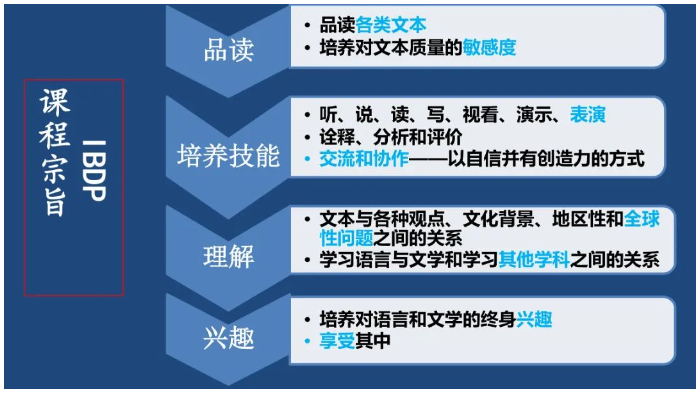
Photo Credit: (Su) Conceptual Understanding and Inquiry
"IB Chinese A is taught, studied and assessed in a way that is at an equal level to a university freshman studying Chinese major."
IB Chinese A students don’t graduate with the simple ability to recite famous texts and recognise many characters. They are equipped with the skills required to apply their Chinese in a university environment, and subsequently in the working world. IB Chinese A is taught, studied and assessed in a way that is at an equal level to a university freshman studying Chinese major, meaning when our students graduate they will be equipped to seamlessly integrate into university life. For example, Chinese essay writing in the IB Diploma Programme helps students master the universal logic of writing. All university students will be required to face the rigorous task of writing essays. Those who have completed the IB are already equipped with these academic skills. In addition, the training in comparative literature and the study of literary and non-literary works in the IB helps students to establish an appropriate cultural perspective and to have an objective and prudent attitude towards different media, so that they can quickly integrate into an international university context. The ability to critically reflect on various sources of information is a core competency both at university and beyond. Through the extensive reading and writing training in IB and IGCSE courses, the positive impact of Chinese language courses on students is long-term and profound.
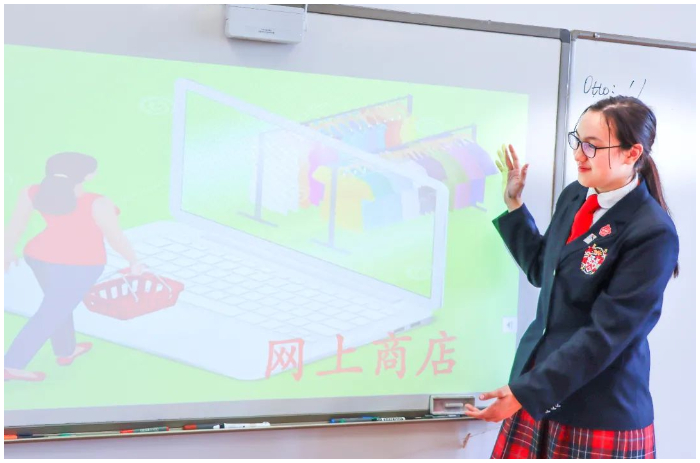
Of the six subject groups that make up the IB Diploma Programme, students who study two languages in the Language and Literature subject group and ultimately earn a score of 3 or higher can earn a Bilingual Diploma. This is because the other four subject groups are all in English. The Dulwich College International family of schools encourages and supports students to choose bilingualism in this subject group.
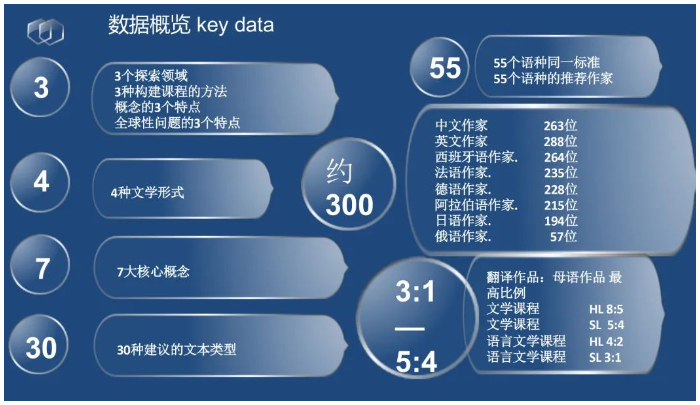
Photo Credit: (Su) Conceptual Understanding and Inquiry
Creating a World-Class Mandarin Classroom
————
The IB Chinese A language and literature assessment requires students to have a solid level of knowledge and skills in the use of language and literature. Having a bank of characters and texts memorised is not enough to be successful. Our students need to be able to apply their language at a high level. To achieve this goal, Chinese as a First Language teaching at Dulwich College Shanghai Puxi infuses the development of these skills into every lesson from DUCKS through to IB so that our students are fully prepared for the rigorous IB requirements. For example, in the Primary School, our Chinese as a First Language teaching materials have four key objectives and skill areas;
1. Chinese Oral Language Skills
To enable students to listen attentively and express themselves effectively in Chinese, and to choose the appropriate type of language for different audiences and purposes.
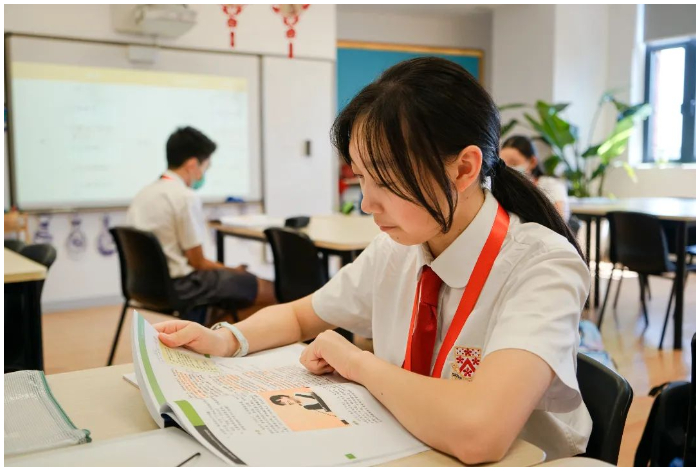
2. Chinese Visual Language Proficiency
To provide students with rich visual and presentation opportunities that enable them to combine images with Chinese to communicate ideas, values, and beliefs.

3. Written Chinese Reading Skills
To develop lifelong reading habits and to develop students' reading skills, reading strategies, conceptual understanding, and information acquisition skills by providing a rich variety of fiction and non-fiction works.
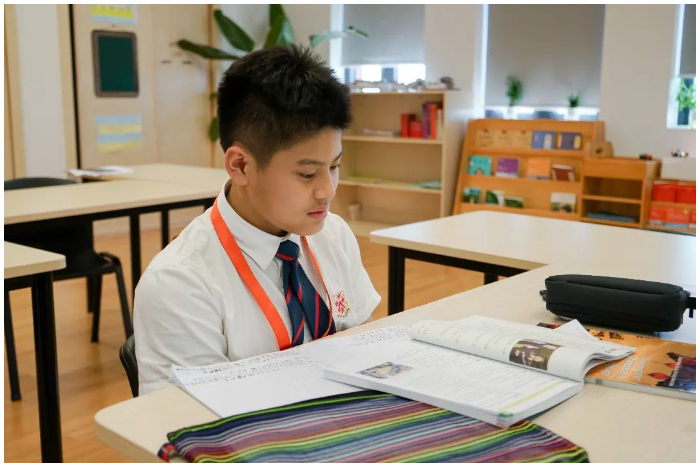
4. Chinese written writing skills
To stimulate students' enthusiasm for self-expression through writing, and to develop students' ability to express themselves accurately and to use various writing strategies and techniques by providing a variety of writing exercises.
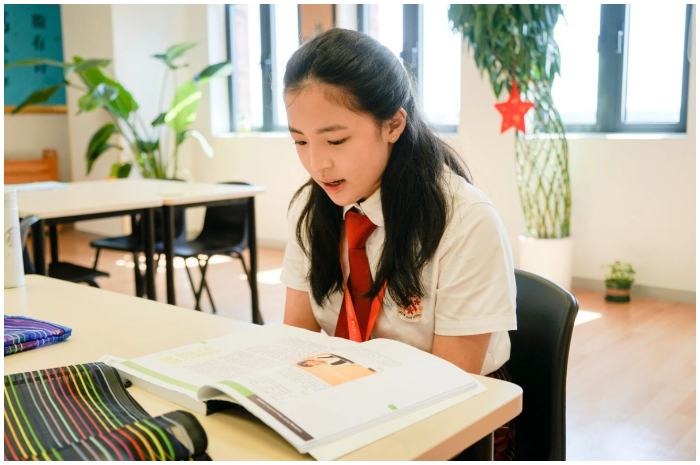
Celebrating Chinese Culture and Language
————
In addition to the effective implementation of the core curriculum, we also provide a wide range of extra-curricular activities in Chinese or celebrating Chinese culture. The Chinese teachers prepare elective courses and CCAs including history and culture, film and dubbing, Chinese art, calligraphy, painting, dance and more. We also hold regular Chinese vlog competitions, writers on campus, drama, and literature workshops to foster students' interest in language and literature that they can enjoy.
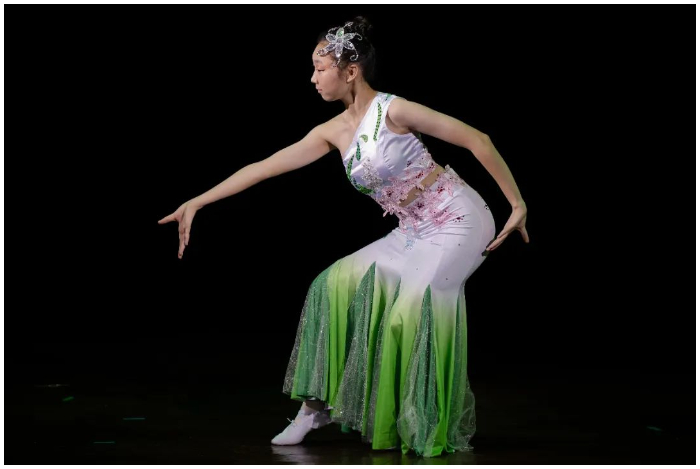
In the IB Chinese A course, issues such as migrant workers and urban-rural disparities have been frequent exam questions in recent years. The greatest function of language learning is also to improve humanistic literacy, and we encourage parents to take their children on more visits to historical and cultural sites to accumulate background knowledge of Chinese culture, and to communicate in the family about topical social issues to develop their children's sensitivity to language and culture. The main purpose of the Chinese as a First Language program is to foster creative thinking and critical thinking activities in Chinese, thus building a cross-cultural and cross-linguistic international perspective. We strongly recommend that students read a wide range of books, magazines and newspapers in Chinese, thus enhancing their textual comprehension, and analytical skills.
Home-School Partnerships
————
Language learning requires persistence over time, and quality Chinese education cannot be achieved without the support and cooperation of families. The Dulwich College International family of schools have developed a tailor-made Chinese curriculum online platform called ‘Wohui’. Parents can support their children's Chinese learning by installing and supporting their children to use the Wohui app regularly. In the words of Professor Hu of Fudan University, this "encourages students to become strong independent learners" and allows teachers to be "more effective in the classroom". (Mandarin As a Bridge to The World)

Throughout the year we celebrate many Chinese festivals and traditions. Last week we held our annual Mid-Autumn Festival assembly, a great example of how our community comes together to learn about and celebrate our local context. We hope that parents can get involved by attending, either in person or virtually, and discussing the significance of these festivals with their children. Get involved in Chinese competitions, and even consider volunteering to come into school and work with our teachers, such as for making mooncakes with the children.
Workshops are a great way for parents to learn more about our curriculum and ask the questions that are important to them. On September 3 our Primary team hosted their workshop on Mandarin Pathways, and on October 21 the Senior School Mandarin team will host theirs. we will also invite Annabel Parker Director of Mandarin to campus to host workshops and introduce the mandarin curriculum.
Conclusion
————
Language learning is closely related to the development of a child's mind, and we know that for many of our students who are native Chinese speakers, the improvement of the Chinese language skills is closely related to their potential future career development. Dulwich College Shanghai Puxi students come from diverse backgrounds, and we value each student's Chinese language learning background, providing appropriate pathways for them. The Mandarin team are committed to creating an efficient, active and positive learning model in the classroom. We expect our students to Graduate Worldwise, extremely confident in using their native language skills in a global context. Paired with fluency in English and a global perspective, our students will be well placed to be the next generation of leaders in the world, wherever life may take them.
References
Dulwich Chinese Native Language Curriculum Standards. 1st ed., Dulwich College International, 2020, Accessed 20 Sept 2021.
Su, Yuan. "Concept Based Learning". 2020.
What Is An IB Education?. International Baccalaureate Organization (UK) Ltd, 2012, p. 4,
https://dpi.wi.gov/sites/default/files/imce/cal/pdf/what-is-an-ib-education.pdf. Accessed 20 Sept 2021.
Language A: Language and Literature Guide, First Assessment, 2021. IBO, 2021, Accessed 20 Sept 2021.
Li, Bo. IBDP Chinese A Study and Assessment Guide. 1st ed., Shanghai Science and Technical Publishers, 2019, pp. 8-9.
Mandarin As a Bridge to The World, 2020, https://mp.weixin.qq.com/s/6I6a22bmEIi6zzWzg27LHw. Accessed 20 Sept 2021.
Mandarin At Dulwich College International. Dulwich College International, 2021, Accessed 20 Sept 2021.





